“By placing the South at the focal point of these sprawling meditations on intimacy and brutality, Benz reminds us that southern history is world history.”
As our editorial team looks forward to more relaxed reading time over the holidays, we’ve (temporarily) put down new submissions to recommend a few of our favorite books this past year. Though we have enjoyed a number of contemporary best-of-list reads (and have more stacked up on our bedside tables besides), you’ll find a mix of old and new here.
The Man Who Shot Out My Eye Is Dead: Stories, by Chanelle Benz (Harper Collins, 2017)
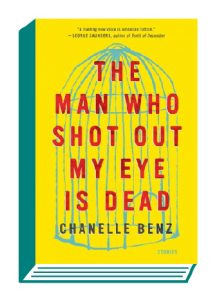
Not every story in Chanelle Benz’s intricate and wrenching collection takes place in the American South, but Benz never strays from southern landscapes for long. From a fictional slave narrative set in antebellum Louisiana to a story about a young woman who leaves her dysfunctional Virginia family on a missionary trip abroad only to be swept against her will into a world of espionage and terrorism, Benz’s stories span centuries and continents. Holding them all together is a reflection on the dynamics of interpersonal violence: misogyny and racism masquerade as benevolence, abuse is enacted in the name of family, and shared traumas drive family members to hurt one another. By placing the South at the focal point of these sprawling meditations on intimacy and brutality, Benz reminds us that southern history is world history. —Emma Calabrese, Associate Editor
Sing, Unburied, Sing
by Jesmyn Ward (Scribner, 2017)
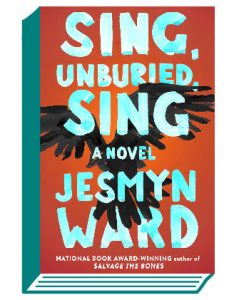
Sing, Unburied, Sing takes you on a journey across Mississippi, through generations of family, and into a realm of memory, magic, and the burden of unspeakable histories. The book is anchored by two black teens: Jojo, who was raised by his grandparents and lovingly cares for his little sister, and Richie, the ghost-memory of a boy sent to Parchman Farm heartbreakingly young. As Jojo rides with his sister and mother to present-day Mississippi State Penitentiary to pick up his newly released father, painful memories of Parchman and his mother’s addiction spin loose. I loved how Ward interlaces spirits, talismans, and the traditional healing skills of Jojo’s grandparents throughout the story. Magic both quells and amplifies Parchman’s horrifying history, a legacy still keening in Sing, Uburied, Sing. —Katy Clune, Digital Editor
Spence + Lila
by Bobbie Ann Mason (Perennial Library, 1989)
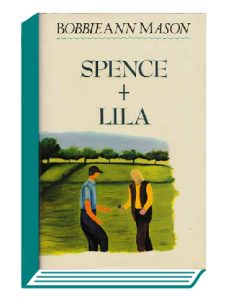
Mason has a knack for capturing the inner complexity of ordinary people. Here she creates two characters whose lives are sewn together by a lifetime of marriage and child-rearing. They are peri-rural folks, living on the edge of a soybean field in a suburbanizing western Kentucky town. Their pleasures are simple—watching TV, gardening, walking at dusk—but their questions are existential as they contemplate their mortality, a changing social world, and the lives their grown children lead. Mason’s writing is subtle, like time passing. —Katherine Roberts, Scholarly Outreach Coordinator
The Underground Railroad
by Colson Whitehead (Doubleday, 2016)
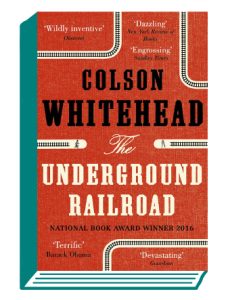
As we witnessed the “Unite the Right” rally in Charlottesville late last summer on media and in headlines, students in my course on the history of the Jewish South had some serious conversations about the long historical arc and intersections of white supremacy, nationalism, and anti-Semitism in America. Whitehead’s The Underground Railroad was one of the powerful texts we referenced to examine the nation’s foundational sin of slavery and how it has ever since shaped America’s violent landscapes of race, ethnicity, gender, and class. In his novel, Whitehead re-crafts the metaphorical underground railroad—the ways fugitive enslaved people were aided in their journeys to freedom—and turns it into a literal railroad that rumbles beneath our feet in imagined subterranean tunnels of the mid-nineteenth-century South. Whitehead takes his readers on a fantastical—and horrific—journey on those rails. I was reminded of Jewish voices in hiding in Nazi-occupied Europe—escaping from “native sons” taunting “Blut und Boden” (blood and soil), the same phrase resurrected and chanted by the right-wing protestors in Virginia 2017. Throughout the semester, it has been painfully clear what this “new” America looks like, and what is required of us to resist and demand the nation we know we deserve. —Marcie Cohen Ferris, Co-Editor
Lightning Song
by Lewis Nordan (Algonquin Books, 1998)
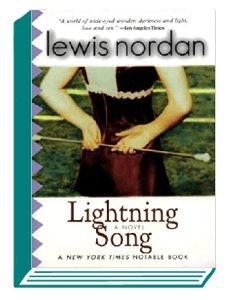
One of my favorite reads this year was Lewis Nordan’s Lightning Song, a coming-of-age story about twelve-year-old Leroy Dearman, whose life is upended when his uncle Harris comes to stay at the family llama farm. Harris’s arrival changes the family dynamic and forces Leroy to navigate a newly complicated world of lightning storms, swamp elves, and Playboy magazines. It is absurd, hilarious, and a little heartbreaking all at once—everything a good story about puberty should be. Plus, reading about a family even wackier than your own is a great way to get through the holiday season.
—Madison Schaper, Assistant Editor
*For more on Lewis Nordan, read our interview with Shannon Ravenel of Algonquin Books.
Ancient Oceans of Central Kentucky
by David Connerley Nahm (Two Dollar Radio, 2014)
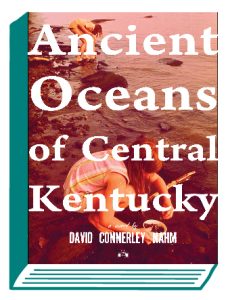
Nahm’s impressionist prose presents a beautifully dark and haunting narrative. Ancient Oceans is composed of a series of vignettes and flashbacks that tell the story of Leah Shepherd, a non-profit worker in Crow Station, Kentucky, struggling with the ghosts and memories of childhood trauma resulting from the disappearance of her younger brother and the lonely emptiness imposed by life’s casual cruelty. Nahm is a master of description, and he establishes a deep sense of place with the poetic detail of James Agee, somehow avoiding nostalgia with sincerely conveyed affection for the semi-rural South. His contemporary and poetic style evokes the beauty, malaise, distraction, uncertainty, and violence of childhood and growing up. At times, my experience with the novel was like reading a record of memories and dreams I never knew I had, but the feelings evoked are so familiar they could only be mine. A remarkable debut novel, and I will be curious to see what he writes next. —Aaron Smithers, Music Editor
Commonwealth
by Ann Patchett (Harper, 2016)
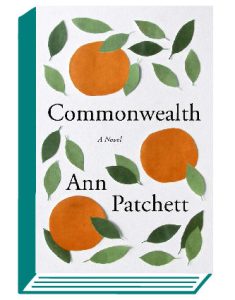
The first few days I read Commonwealth I had an unquenchable hankering for orange juice and wondered if I might be getting a cold. I realized later it was the book’s opening—a scene that unfolds as Bert Cousins squeezes oranges in a California kitchen—sticking with me. That’s how it was with all of Commonwealth, which manages to follow the lives of six siblings and four parents across five decades and two coasts with a depth and tenderness that lingers. There are multiple fractures between the lives of the two families (divorce, an unshakeable death, time, and physical space), but there’s also a closeness—held together by an undercurrent of shared memories and traumas, as well as Patchett’s deft observation. —Emily Wallace, Deputy Editor

